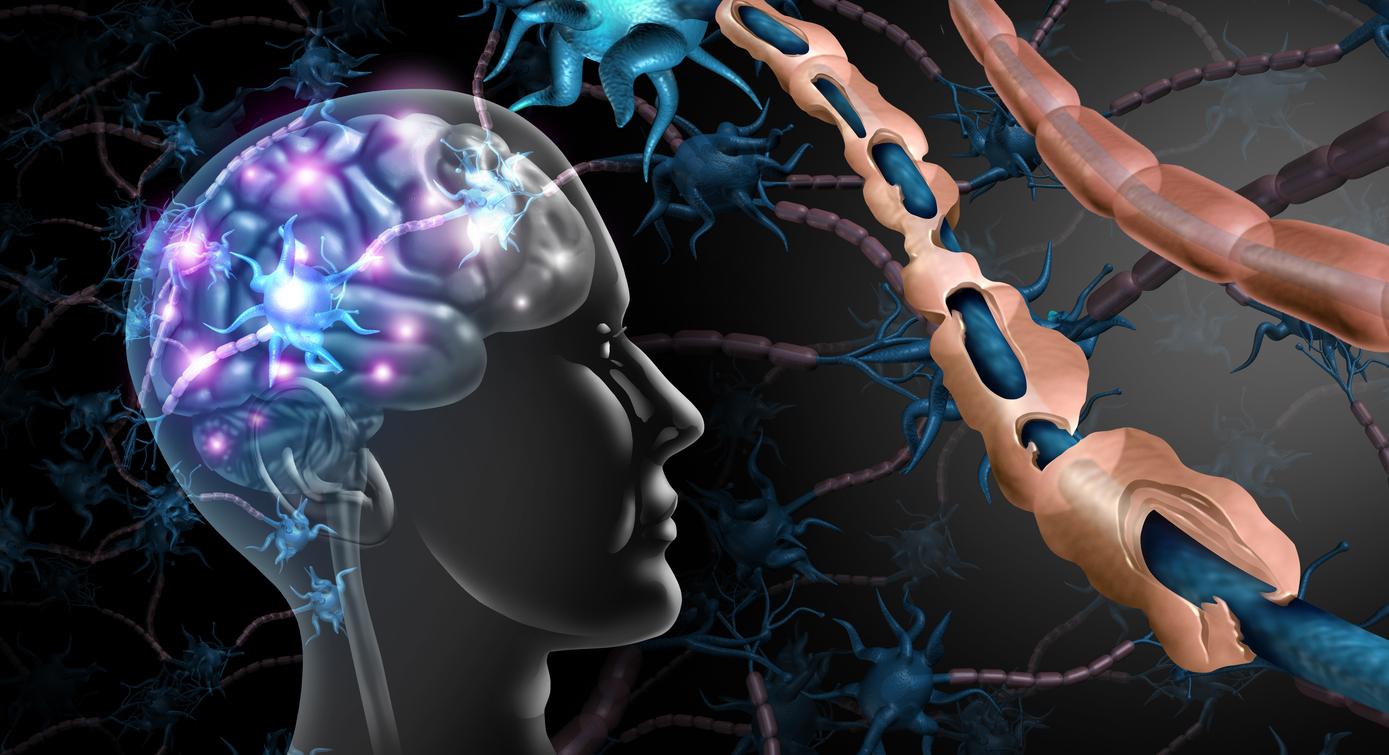Why doctor takes stock of the various innovations in the treatment of multiple sclerosis on the occasion of this world day.

- Current treatments for MS focus on slowing disease progression, not curing it
- A drug against diabetes could influence the course of MS
- French people leave for Russia to undergo a transplant of hematopoietic cells
About 100,000 people, including 700 children, suffer from multiple sclerosis (MS) in France. Disabling and painful, this degenerative disease simultaneously affects scattered areas within the white matter of the brain and spinal cord. Which means the immune system, usually involved in the fight against viruses and bacteria, goes into overdrive and attacks myelin, the protective sheath of nerve fibers that allows the brain to transfer messages to different parts of the body.
One disease, many forms
If the case of each patient is unique, three evolutionary forms are defined:
– so-called “benign” multiple sclerosis which evolves in flare-ups spaced out by 10 or more. Some patients experience only one attack in their lifetime and will never be diagnosed as the sequelae and functional impairment are non-existent. This form of MS would affect between 20 and 30% of confirmed patients – this assessment cannot account for those who are unaware.
– relapsing-remitting multiple sclerosis (RR MS) affects 80 to 85% of patients and progresses through acute attacks interspersed with phases of remission (ie without symptoms).
– the progressive-primary multiple sclerosis (PPMS) is rarer and concerns 10 to 15% of patients. It evolves rapidly, without a period of remission.
Reduce disease progression
Currently, there is no treatment that can cure multiple sclerosis, but Progress made in recent years has made it possible to isolate molecules capable of delaying the progression of the disease. The general principle of current management of MS consists of treating flare-ups to reduce the inflammatory phase, then preventing recurrences with disease-modifying treatment and relieving complications (pain, fatigue, urinary disorders, etc.). Different disease-modifying treatments have demonstrated their effectiveness in reducing the frequency of flare-ups. In doing so, they can delay or reduce the number of lesions and therefore the disability.
Disease-modifying treatments belong to two categories: immunomodulators (ß interferons, glatiramer acetate), which will modulate or suspend the activity of the immune system, and immunosuppressants, which will block or suppress immune cells. Among the immunosuppressants, there are anti-cancer drugs such as mitoxantrone, monoclonal antibodies such as rituximab, alemtuzumab or natazilumab and a selective immunosuppressant such as fingolimod.
The “spectacular” effect of a treatment for diabetes
At the end of 2019, a study looking at the effectiveness of a diabetes drug in “dramatically” slowing the progression of MS was published in the journal Cell Stem Cell. After three weeks of treatment, the myelin of the mice tested was perfectly restored. Researchers would therefore like to use Metformin to rejuvenate stem cells, in order to transform them into myelin-producing cells to fight against multiple sclerosis.
The first tests on human patients are planned within a year. “It’s always a leap into the unknown when you go from laboratory experiments to human beings. But the data is solid and compelling. I am very optimistic”explained to the newspaper The Guardian Professor Robin Franklin, author of the study.
Hematopoietic cell transplantation
A few patients decided to try a stem cell transplant in a hospital in Moscow (Russia). This is particularly the case of Fouzi Bouraghda, 31, who has had MS for 5 years. “I prefer to try my luck before the degeneration is too advanced. I feel the disease progressing. For me, this stem cell transplant is my last chance”he confided to 20 minutes in November 2019.
In France, this treatment has been administered to a few patients but still presents too many risks to extend it to all patients: “Uten people have undergone this type of transplant in our services in Lille. It works, but it is a very heavy treatment and can be dangerous. Three patients spent weeks in intensive care”explains to our colleagues Professor Patrick Vermersch, neurologist expert in the disease at the Lille University Hospital.
Studies are being conducted around the world to better understand multiple sclerosis, develop a cure, or find a way to promote myelin repair mechanisms.

.

















